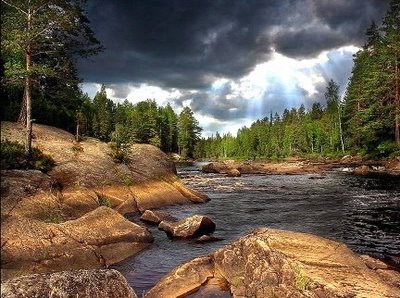

| Visitors Now: | |
| Total Visits: | |
| Total Stories: |

| Story Views | |
| Now: | |
| Last Hour: | |
| Last 24 Hours: | |
| Total: | |
“The Solitude Of Nature”
Wednesday, October 24, 2012 22:12
% of readers think this story is Fact. Add your two cents.
“The Solitude Of Nature”
by Dzigar Kongtrul
“The solitude of nature sometimes brings a touch
of melancholy or sadness to the mind. Alone with the trees and wind and
the birds, ants, and wild animals, you naturally begin to reflect more
deeply. As your view of what is meaningful becomes more vast, your sense
of melancholy deepens. You may notice something ironic: sitting quietly
alone, you may feel less isolated from the world than you do when
you’re busily engaged in the hustle and bustle of your everyday lives.
․
of melancholy or sadness to the mind. Alone with the trees and wind and
the birds, ants, and wild animals, you naturally begin to reflect more
deeply. As your view of what is meaningful becomes more vast, your sense
of melancholy deepens. You may notice something ironic: sitting quietly
alone, you may feel less isolated from the world than you do when
you’re busily engaged in the hustle and bustle of your everyday lives.
․
Some
people feel a strong attraction to this unfamiliar feeling of
melancholy- and others, a strong urge to run away. In either case, the
important thing is to appreciate our underlying sadness. It is a hint
of a deeper intelligence that is normally obscured by the distractions
of daily life. In solitude, this natural faculty of our mind comes out
of an almost dormant state. Looking out at the natural beauty around us,
we realize how much there is to appreciate beyond the narrow focus of
ego- and how meaningless is our madly driven life.
people feel a strong attraction to this unfamiliar feeling of
melancholy- and others, a strong urge to run away. In either case, the
important thing is to appreciate our underlying sadness. It is a hint
of a deeper intelligence that is normally obscured by the distractions
of daily life. In solitude, this natural faculty of our mind comes out
of an almost dormant state. Looking out at the natural beauty around us,
we realize how much there is to appreciate beyond the narrow focus of
ego- and how meaningless is our madly driven life.
The
many distractions that we usually find so significant become less
important or pointless. We see how, instead of entertaining us, they
generate the hassles of gathering and maintaining, and how this endless
cycle of busyness ties up our intelligence. In solitary retreat, we can
put our intelligence to better use: We can use it to achieve something
of true and lasting benefit for this life. Spending time in solitude
allows many positive qualities to break through the crust of mundane
mind- and all of them point to the source of true happiness and freedom
from suffering. This is our natural birthright.”
many distractions that we usually find so significant become less
important or pointless. We see how, instead of entertaining us, they
generate the hassles of gathering and maintaining, and how this endless
cycle of busyness ties up our intelligence. In solitary retreat, we can
put our intelligence to better use: We can use it to achieve something
of true and lasting benefit for this life. Spending time in solitude
allows many positive qualities to break through the crust of mundane
mind- and all of them point to the source of true happiness and freedom
from suffering. This is our natural birthright.”
- Dzigar Kongtrul, “It’s Up to You”
2012-10-24 22:00:53
Source: http://coyoteprime-runningcauseicantfly.blogspot.com/2012/10/the-solitude-of-nature.html
Source:



